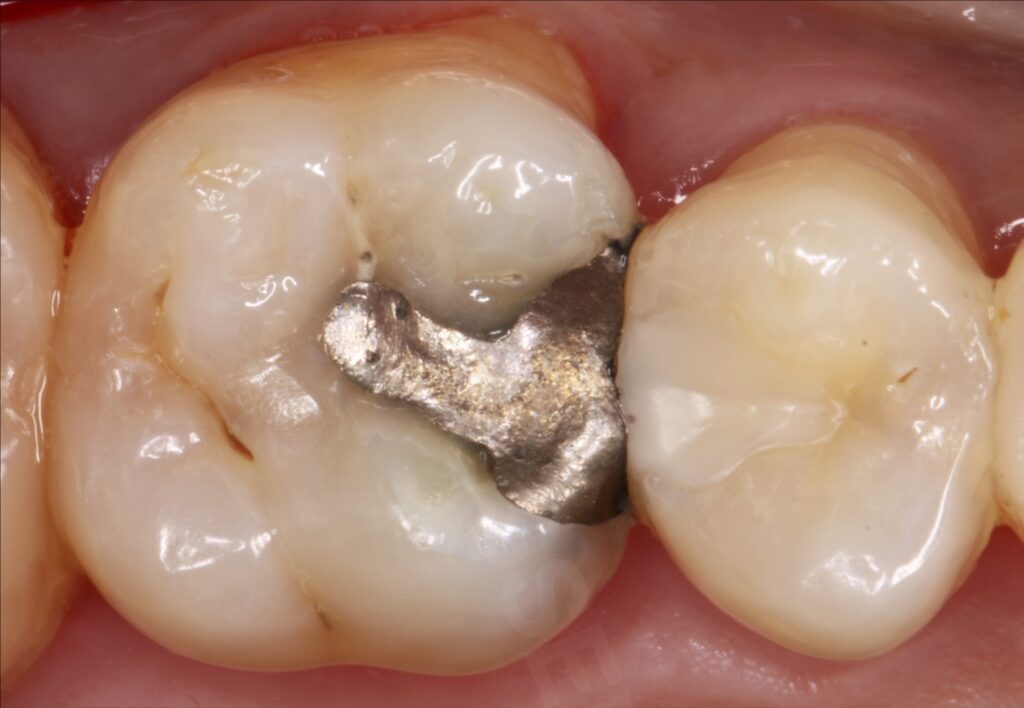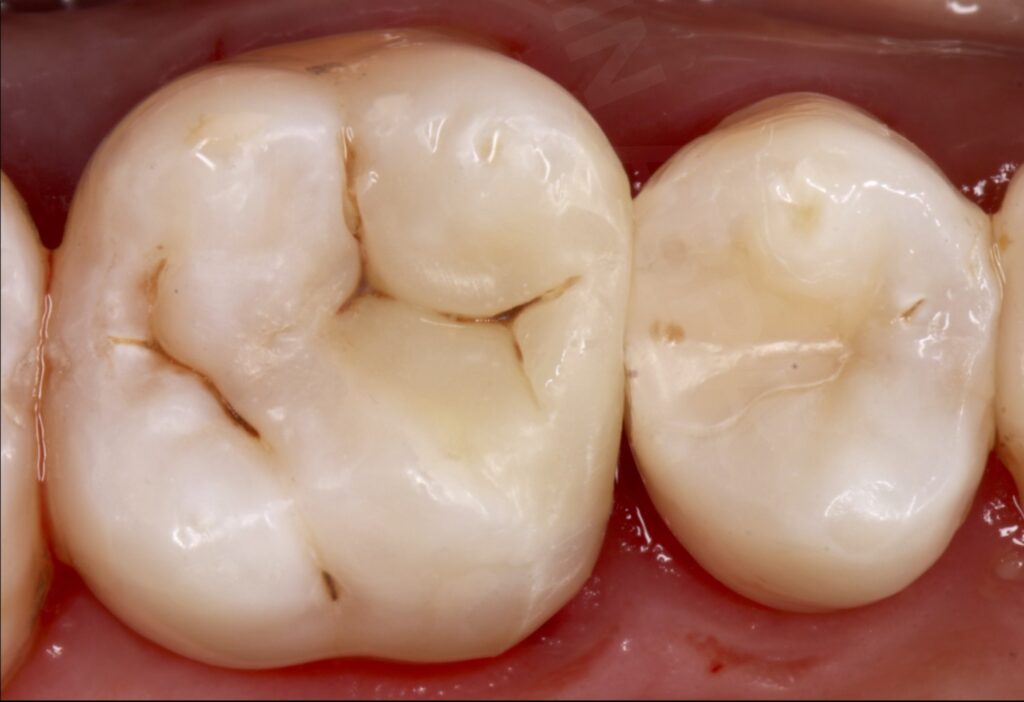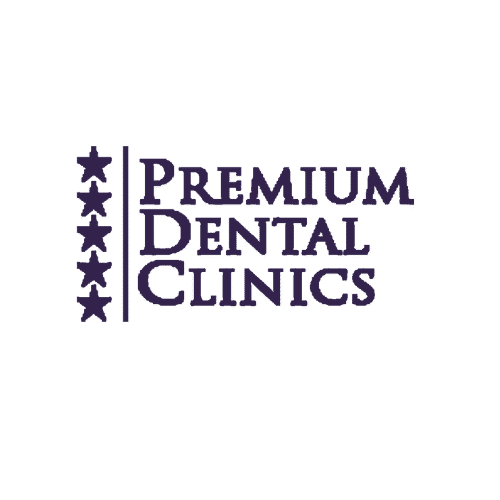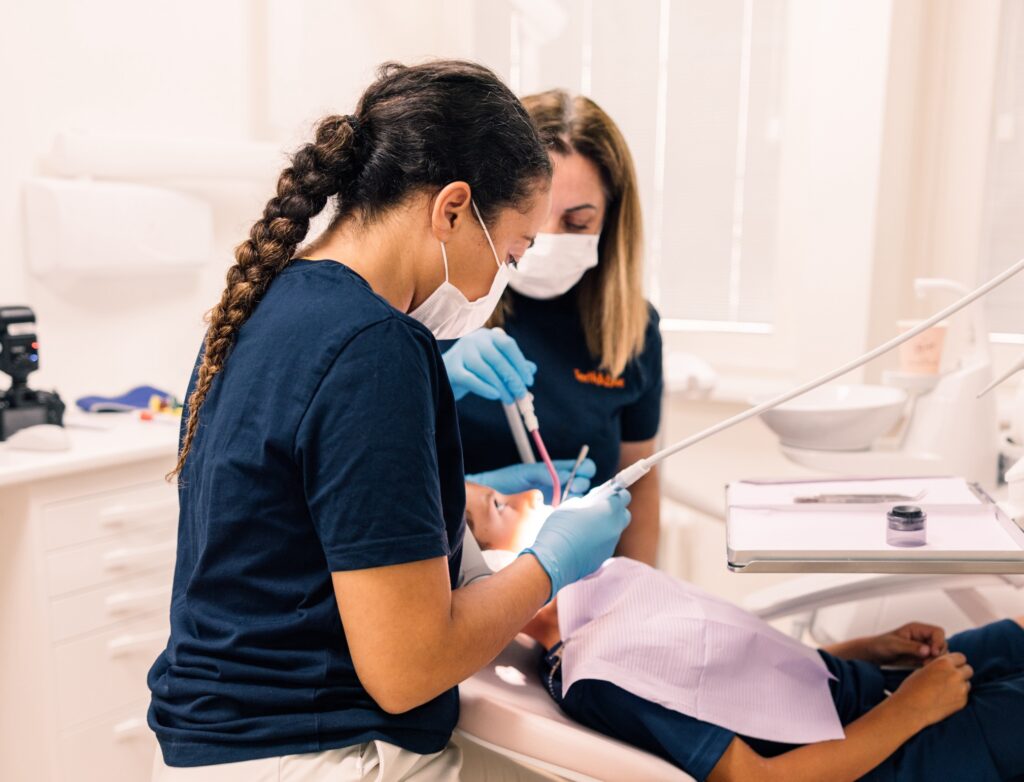Treatment of cavities
The classic of dentistry…
Tooth decay is an infectious disease that destroys the structure of your teeth. The bacteria present in your mouth use dental plaque -and more specifically sugars-to produce acids that demineralise and weaken your teeth, creating cavities.
Caries treatment at CHD
The treatment of these cavities involves cleaning the infected areas and rebuilding them in the form of sculpted composite resin for both functional and aesthetic purposes.
Discover this treatment in video


Visit our library of
Rates
| Treatment of cavities | On quotation from 180 chf to 420 chf |
Fair & transparent prices
We strive to maintain unbeatable value for money: reasonable prices, which have not changed since 2016, for quality of care that has earned us numerous awards:




Advice
At the end of the session, the dentist will check that the resin restoration he has sculpted is cleanable and that it fits in with your chewing movements.
Nothing should be left to chance in this meticulous treatment!
A final word of advice? You’re perfectly welcome to eat after your treatment, just make sure you don’t bite yourself with the anaesthetic.
Forget crowns, which are too expensive and far too invasive for dental tissue. In most cases, a composite resin or onlay will suffice.
Dr Thomas, Dentist, CHD Clinics Lausanne and Yverdon – Nord Vaudois.
Next appointment
Your next appointment (recall) is scheduled as part of the personalised follow-up offered by CHD. This is based on your lifestyle, the quality of your saliva and other parameters, to ensure that your oral health remains at an optimum level. And you don’t have to worry about it any more, we’ll take care of reminding you: text message, letter, email, it’s your choice!
Our dental clinics
Find out more about cavity treatment
What are cavities and how do they form?
Tooth decay is an infectious disease that destroys the enamel and then the dentine of a tooth, forming a cavity.
It is caused by bacteria that are naturally present in a patient’s mouth, but is encouraged by high sugar consumption and poor oral hygiene habits.
What are the symptoms of tooth decay?
Unfortunately, tooth decay generally causes NO symptoms, which often delays patients’ consultations and encourages the decay to progress deeper into the tooth. However, there are some potential signs when decay progresses deeper:
– Sensitivity to cold and/or heat;
– Pain when chewing sweet or acidic foods;
– Formation of a stain or cavity visible to the naked eye;
– Sharp pain (even without chewing) in the decayed tooth and the area around it;
– Appearance of a dental abscess
– Retention of food between 2 teeth.
How can cavities be prevented?
To prevent cavities from developing, it is essential to adopt good oral hygiene: brushing your teeth at least twice a day, preferably 30 minutes after each meal, but above all using an interdental accessory (such as dental floss or brushes) to remove bacteria from between the teeth. It’s also important to eat foods that are lower in sugar and to avoid snacking outside mealtimes.
Finally, it’s essential to have your teeth regularly cleaned by a dental hygienist (at least once a year).
What can I do after a cavity has been treated to prevent recurrence?
After a cavity has been treated, you should strictly follow the advice given by your hygienist and/or dentist:
– Adopt impeccable oral hygiene;
– Use brushes or dental floss for interdental brushing;
– Eat more healthily (less sugar) and only during meals.